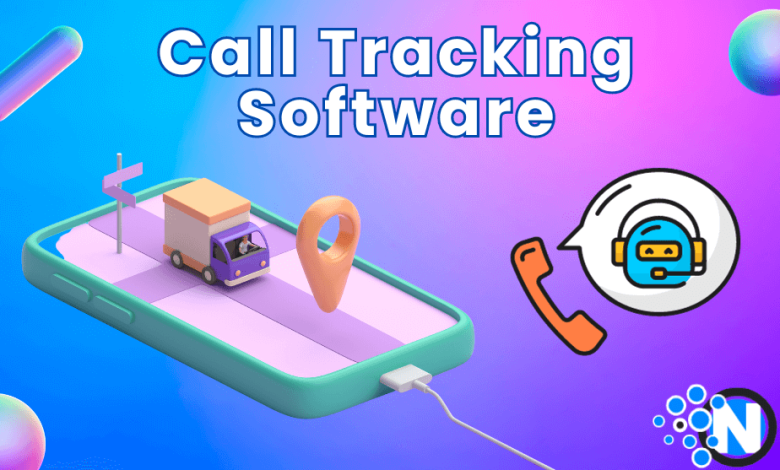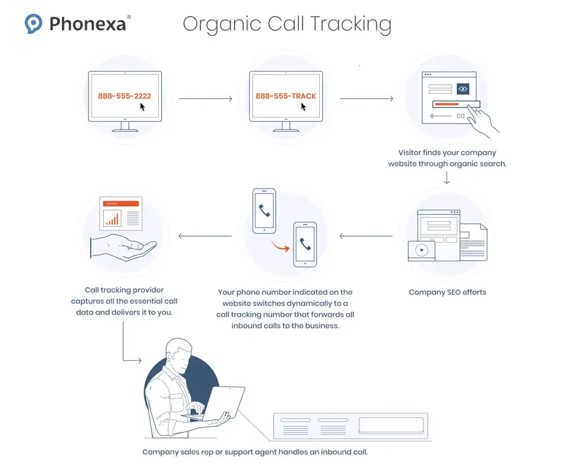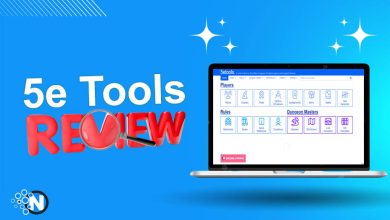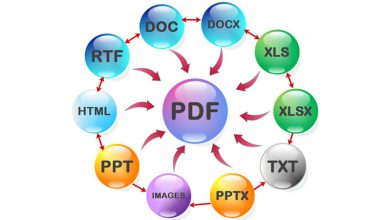The Impact of Call Tracking Software on Customer Experience

In the age of fierce competition and ever-evolving customer demands, providing an exceptional customer experience with call-tracking technology has never been more critical to a business’s success. In fact, according to a recent study by PwC, 73% of consumers consider customer experience a crucial factor in their purchasing decisions. This underscores the importance of understanding and optimizing every touchpoint in the customer journey, including phone calls.
Call tracking software is a real corporate game-changer, potentially increasing client retention and satisfaction. In this article, we will discuss the ways in which this technology might help your business to grow.
Benefits of Using Call Tracking
First, call-tracking software provides useful information about customer contacts, allowing organizations to make data-driven choices that improve customer service. Second, From identifying patterns in call volume to pinpointing the source of inbound calls, this technology provides a wealth of information that can be leveraged to optimize marketing efforts and streamline communication processes.
Lastly, businesses can improve customer experience, boost conversion rates, increase customer retention, and drive revenue growth by harnessing the power of sales call-tracking software. What is Call Tracking?
Stay tuned as we dive deep into the world of call-tracking software, exploring its various features, real-life success stories, and practical tips for implementation.
If you’re a business owner or marketer looking to elevate your customer experience and unlock new avenues for growth, this article is the comprehensive guide you’ve been searching for. Take advantage of the opportunity to discover how call-tracking software can revolutionize how you connect with your customers and propel your business to new heights.
Call Center Tracking Software
According to SNS Insider’s analysis, the value of the Cloud-Based Contact Center Market was USD 18.79 billion in 2022, and it is expected to increase to USD 121.94 billion by 2030, growing at a CAGR (compound annual growth rate) of 26.33% between 2023 and 2030.
Because of this, it’s no surprise that many big businesses with contact centers or that depend on incoming and outbound calls have made substantial investments in VoIP and call tracking systems. What sets inbound call tracking software distinct from outbound call tracking software, though?
Inbound Call
In a call center or contact center, an inbound call is one that the customer initiates. A support desk also handles incoming calls. But they can originate from within the company, not the customers. A call center could take just incoming calls, only outgoing calls, or both.

An incoming call center often handles calls from customers and potential customers. This kind of contact center emphasizes customer service because of the nature of the calls they get.
The primary functions of inbound call centers are to respond to queries, handle client problems, and allay consumer fears. Many customers may only ever interact with one of these reps. Therefore, they must be kind, helpful, and well-versed in corporate rules.
Outbound Call
A call made by a customer service agent on behalf of a client or contact center is called an outbound call. A fundraising, lead generation, sales, or outbound telemarketing call is made to reach a possible customer.
In contrast to incoming call centers, outbound call centers make more calls. Its top objectives are the corporation’s marketing, sales, and PR operations. Representatives in these contact centers usually make use of clientele databases. This allows them to spend time aiding customers in improving their services while simultaneously making cold calls and sales pitches.
As we go deeper into call tracking software, it’s critical to understand the major distinctions between inbound and outbound call monitoring software. Both forms of software provide distinct advantages to firms with contact centers, but their applications and functions differ. If they grasp these distinctions, businesses may make informed judgments about which type of software best meets their goals and objectives.
Inbound Call Tracking Software
Inbound call tracking software monitors, analyzes, and optimizes inbound calls to your company. This software is very useful for companies that rely extensively on customer queries, support requests, or sales calls. The following are key aspects of inbound call tracking software:
- Call attribution: Determine which marketing channels, campaigns, or keywords are responsible for incoming calls, allowing you to improve your marketing efforts and allocate resources more efficiently.
- Call recording and transcription: Review and analyze call recordings and transcriptions to learn more about your customers and enhance agent performance.
- IVR and routing: Automatically route customers to the proper department or representative depending on their needs, decreasing wait times and increasing customer satisfaction.
Outbound Call Tracking Software
The goal of outbound call tracking software is to organize and optimize your business’s sales and follow-up calls made to potential customers. Organizations that employ salespeople or do market research can benefit greatly from this software. Key features of call tracking software for outbound calls include:
- Dialer integration: Incorporating this software into your current dialer setup is a breeze, and the resulting improvements to your outbound call efficiency will be immediately apparent.
- KPI: Track important performance indicators like call time, conversion rates, and agent productivity to find areas for improvement and enhance results.
- Personalization: Provide agents with personalized call scripts and real-time coaching to improve their communication skills and boost the likelihood of a successful outcome.
Which Type of Software Should Companies Consider?
The choice between the two types of call-tracking software should be based on your company’s specific needs and objectives. For instance, inbound call monitoring software can make it simpler to manage incoming calls and boost the efficiency of advertising initiatives.
Outbound call monitoring software equips your team with the resources and knowledge to maximize efficiency and output if your business model (such as sales or market research) requires proactive contact with clients or potential customers. Sales and market analysis are two potential sub-components of this company strategy.
Benefits of Call Tracking and How It Impacts Your Business
There are several potential benefits to adding call monitoring software to your existing campaigns. However, if you want a more knowledgeable and efficient customer support crew, you should spring for some high-end call-tracking software.
Dedicated call-tracking software can help you monitor and handle calls from existing and future clients more effectively. This technology may be used by any size of the customer support team, from a single agent to a massive call center.
Including call tracking in your customer service operations may bring a number of benefits to your business.

Please embed this YouTube video in the article so you can play the video without leaving the page.
The ability to see how customers are being treated. You may track how your customer service department is improving the overall happiness of your clientele.
Besides, you can note recurring patterns in inquiries, difficulties, and strengths. You may use this information to teach better and educate your customer service representatives to provide consistent, positive outcomes.
The key benefits of implementing phone call tracking software include improved customer service, increased customer satisfaction, and higher customer retention rates. By using call tracking data to analyze call patterns, identify areas of improvement, and optimize marketing efforts, businesses can ensure they provide the best possible experience for their customers.
Key Benefits of Phone Call Tracking Software
| Benefits | Methods | Outcomes |
| Improved customer service | Using call tracking data to analyze call patterns | Best possible experience for customers |
| Increased customer satisfaction | Identifying areas of improvement through call data | Increased customer loyalty |
| Higher Customer Retention Rates | Optimizing marketing efforts using call data | Greater customer retention |
We encourage businesses to incorporate call-tracking software into their processes and strategies. By doing so, they can unlock new opportunities for growth and stay ahead of the competition in today’s customer-focused market. The ability to provide exceptional customer service through call tracking is not just a luxury; it is now a necessity for businesses looking to thrive in the modern economy.
So without further ado, let’s look at the main benefits call tracking software offers to advertisers, marketers, and brands.
Call Tracking Numbers and Metrics Help You Understand Customers’ Journey
One of the modern organizations’ most difficult tasks is creating a customer journey map, considering both online and offline consumer interactions. Your marketing efforts may be off if you have a partial picture of the customer’s journey. This indicates that marketers should concentrate on more than just digital channels and track how calls contribute to the buying process.
Only in this manner can you see how your marketing efforts are faring across all channels and adjust your approach accordingly. Most call tracking software systems also include customer relationship management (CRM) technologies, allowing organizations to collect and retain comprehensive consumer data.
Integrating Phone Call Tracking Software With an Existing CRM System
Using a customer relationship management system (CRM) to keep tabs on call metrics is a common feature of more sophisticated call monitoring systems. Instead of basing judgments on the number of leads, firms should consider the actual money produced by various marketing initiatives. Profit-driven businesses have a distinct competitive edge. The customer’s whole record, including their ad history, purchases, and geolocation, is available to the agent when they pick up the phone. The salesperson is in a prime position to recommend the most appropriate product.
Training for Better Call Tracking Capabilities
Conversational acuity refers to the ability to converse fluently with other people. Information only available via personal phone calls is difficult to find online. With call recording, you can hear what the client has to say. Both incoming and outgoing calls may be recorded. This will help you pick up on people’s queries, areas of interest, and problems. You’ll have a far easier time determining which leads are worth pursuing and where your marketing dollars should go.
However, listening to every recorded call may be impractical. The term “conversation intelligence” may also describe the marketing data gleaned through call analytics and lead quality. The process of evaluating calls may be simplified in a variety of ways. Transcriptions, AI, and keyword spotting are all options, with the latter two searching your transcripts for specified terms.
You may also gauge the efficiency of your call center agents in this way. How do different consumers react to various salespeople and methods? It is more efficient to advise workers toward their objectives than to waste time teaching them in areas they excel in. They have more success and feel better about themselves. In the meantime, you learn a lot more about your consumers.
Better Interactions with Customers
Call tracking’s primary purpose is to enhance the quality of service provided to existing customers. Customers like to speak with a company over the phone, and customers who have been doing a mobile search are more likely to call than to fill out a web form. Giving them a phone number to contact would thereby enhance their satisfaction as customers.
There is a wide variety of clientele from whom a company might choose. They have different ways of experiencing a product or service. Their requirements, pursuits, purchasing capacity, and commitment to your brand may vary widely. In the past, businesses would survey a small subset of clients and use that data to extrapolate to the whole customer base. However, nowadays, consumers are eager to have their thoughts heard and are quick to express them on various social media platforms. To succeed in today’s economy, companies must thoroughly evaluate consumer satisfaction.
Call tracking provides insights into who called, why they called, what they wanted, any questions or reservations, where they were in the buying process, and whether or not a sale was accomplished. Many companies have departments that operate independently of one another. However, the data gleaned through call monitoring may be easily communicated to other departments, such as customer service and sales, to enhance service quality continuously.
Final Thoughts
Experiences are more crucial than ever before in shaping how consumers see a company. We don’t mean a pop-up store experience; we suggest conversing with one of your salespeople or customer service representatives. Up to 58% of consumers will pay up to 10% extra for guaranteed first-rate service.
By reducing friction points for customers, you may boost their lifetime value and keep more of them as paying customers. That seems simple enough. If you know just what needs fixing, however, fixing it becomes a breeze. You can improve your customers’ experiences by measuring the proper metrics and keeping tabs on the relevant customer contact points.
The impact of call tracking software on customer experience cannot be overstated. Throughout this article, we’ve explored how this powerful tool can help businesses gain valuable insights into their customers’ needs, preferences, and pain points. By leveraging these insights, companies can create a personalized and customer-centric experience that not only meets but exceeds the expectations of their customers.
As a final thought, remember that investing in call tracking software is an investment in your customers and their experience with your brand. By prioritizing customer experience and utilizing the insights provided by call tracking, you are proactively building lasting relationships with your customers and fostering a loyal customer base to drive your business forward. Embrace the power of call tracking software and elevate your customer experience to new heights.




